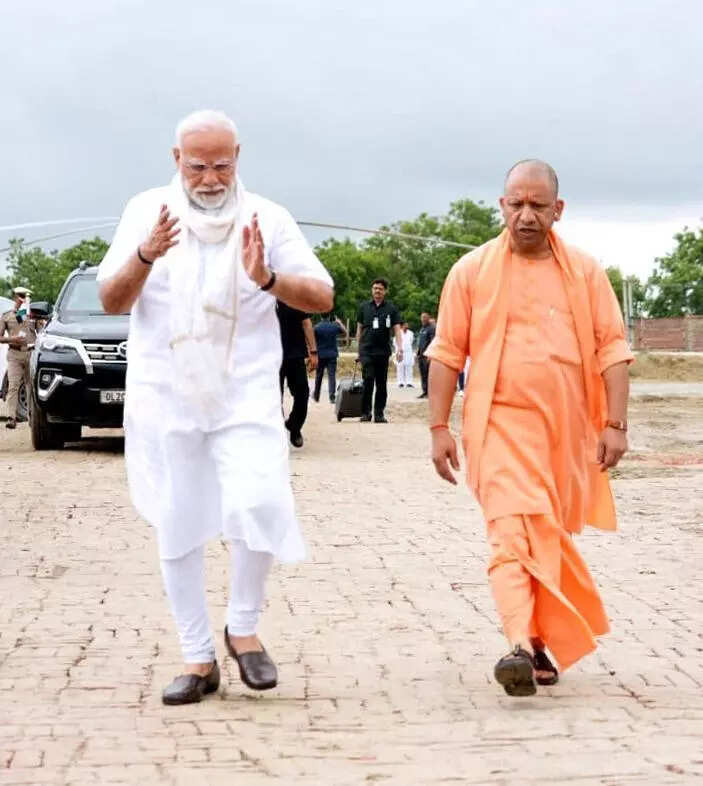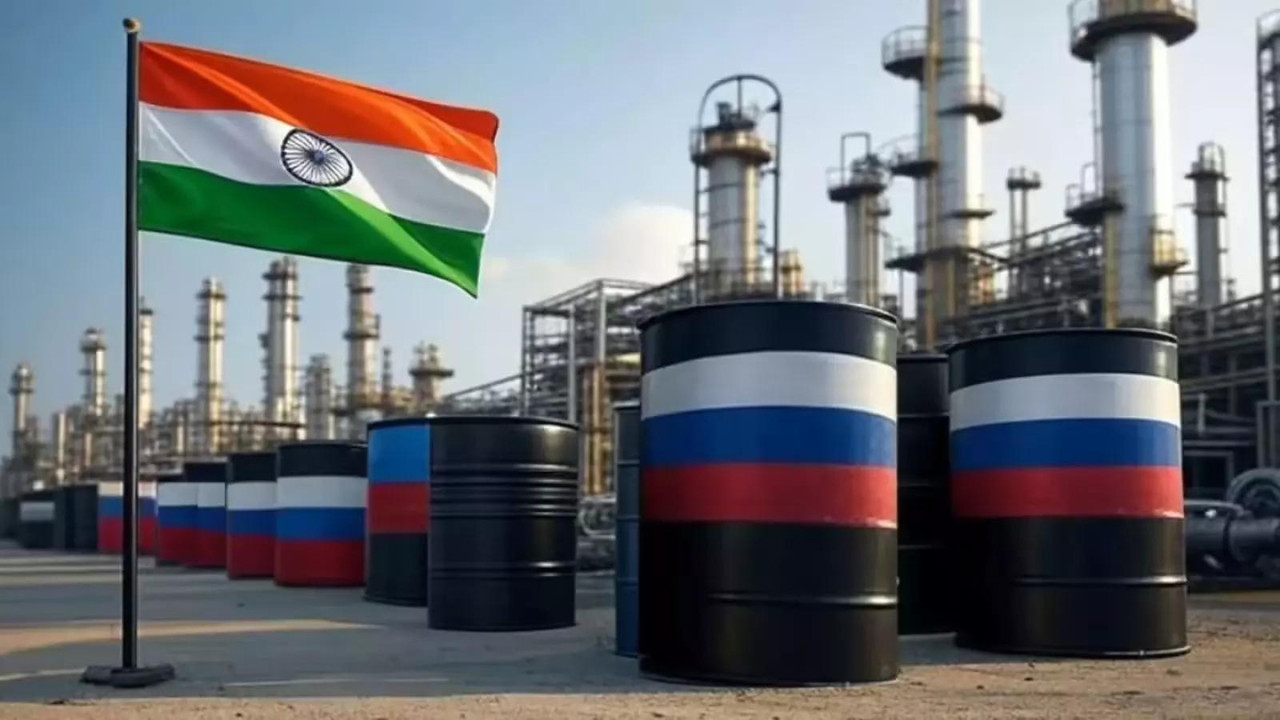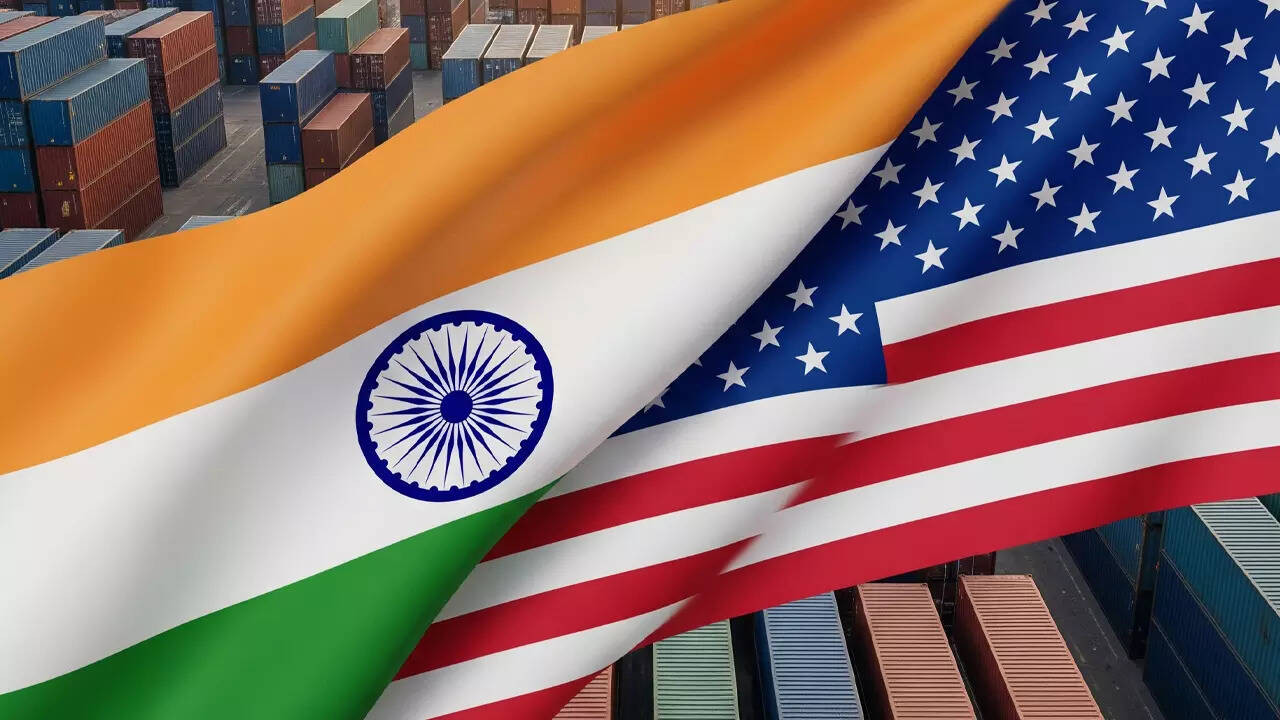Prime Minister Modi, addressing his constituency, emphasized prioritizing farmers’ welfare, small industries, and youth employment amid global economic instability. He urged citizens to embrace ‘swadeshi’ products and support local businesses, highlighting India’s economic resilience and commitment to its interests. Modi also transferred Rs 20,500 crore to farmers under the PM-KISAN scheme, reaffirming his government’s dedication to agriculture.
Navigating the Global Trade Winds: How India Plans to Shield its Farmers, MSMEs, and Youth
The global economic landscape feels a bit like a ship navigating stormy seas these days, doesn’t it? With trade tensions swirling and protectionist winds picking up, it’s understandable that businesses and individuals alike are feeling a bit anxious. Recently, the threat of renewed tariffs loomed large, casting a shadow over international trade relationships. But what about India? How is the nation preparing to weather these potential storms and safeguard the interests of its key economic engines: farmers, micro, small, and medium enterprises (MSMEs), and its burgeoning youth population?
The answer, it seems, is a proactive approach focused on bolstering domestic strength and strategically engaging in the global marketplace.
A Promise of Protection and Empowerment
In a recent address, the Prime Minister underscored the government’s unwavering commitment to protecting the livelihoods of Indian farmers. Agriculture, the backbone of the Indian economy, remains particularly vulnerable to fluctuations in global trade. The pledge wasn’t just lip service; it signaled a dedication to implementing policies that shield farmers from the adverse effects of potential trade wars and ensure fair prices for their produce. This could involve measures such as strengthening existing support systems, diversifying export markets, and investing in agricultural infrastructure to enhance productivity and reduce reliance on specific trade partners.

The focus extends beyond agriculture. India’s MSMEs, the engines of job creation and innovation, are also in the spotlight. These enterprises, often operating with limited resources, are particularly susceptible to trade barriers and increased competition from foreign players. The government’s commitment to protecting Indian farmers and MSMEs involves initiatives designed to enhance their competitiveness, provide access to credit, and streamline regulatory processes. The goal is to create an environment where these businesses can thrive, both domestically and internationally.
Investing in the Future: The Role of India’s Youth
India’s demographic dividend – its large and youthful population – represents a tremendous opportunity. However, this potential can only be realized if the youth are equipped with the skills and opportunities to succeed in a rapidly evolving global economy. Recognizing this, the government is prioritizing investments in education, skill development, and entrepreneurship. The aim is to create a workforce that is not only employable but also innovative and adaptable, capable of driving economic growth and contributing to India’s global competitiveness.
Think of it as building a strong foundation for the future. By empowering its youth with the right tools and knowledge, India is positioning itself to navigate the challenges and capitalize on the opportunities that lie ahead. This also entails fostering a culture of innovation and entrepreneurship, encouraging young people to start their own businesses and create jobs.
Building Resilience Through Diversification
One of the key strategies for mitigating the impact of global trade tensions is diversification. This applies to both export markets and the range of products and services that India offers. By reducing reliance on specific markets and diversifying its export basket, India can insulate itself from the shocks that may arise from trade disputes and protectionist measures. This requires a concerted effort to identify new markets, promote new products, and enhance the competitiveness of Indian exporters. Learn more about [India’s Export Strategy](internal-link).
This approach goes hand-in-hand with strengthening domestic demand. A robust domestic market provides a buffer against external shocks and creates a more stable environment for businesses to operate in. The government is actively promoting domestic consumption through various initiatives, including infrastructure development and social welfare programs.
A Balanced Approach: Embracing Global Engagement
While prioritizing protection and empowerment, India remains committed to engaging in the global marketplace. The goal is not to isolate itself but rather to participate on its own terms, ensuring that its interests are protected and its voice is heard. This involves actively participating in multilateral trade negotiations, forging strategic partnerships with other countries, and advocating for a fair and equitable global trading system.
The ongoing developments in the global trade arena underscore the importance of resilience, adaptability, and strategic thinking. India’s commitment to protecting its Indian farmers, MSMEs, and youth, coupled with its focus on diversification and global engagement, represents a comprehensive approach to navigating these challenging times and securing a prosperous future for its citizens. The path forward requires continued vigilance, proactive policymaking, and a collective effort from all stakeholders.







